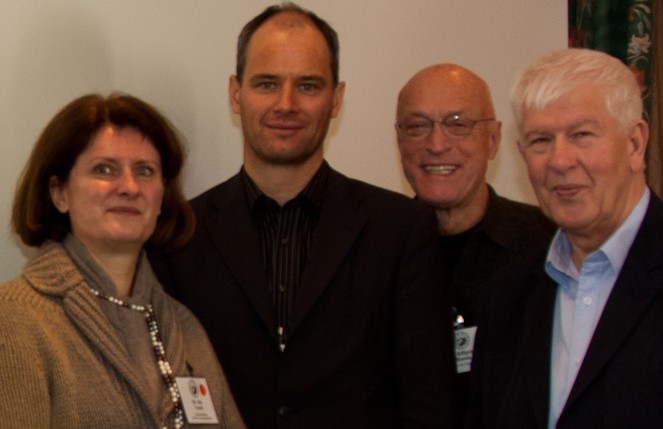The end of an era
For close on 20 years, European beverage bottlers, wholesalers, brewers and retailers had met in the Swiss skiing resort of Davos to discuss pertinent industry issues. The annual conference called Bündner Runde was organised by Rüdiger Ruoss, host extraordinaire and one of the best-connected men in the industry.
Readers will remember that his World Beer and Drinks Forum in Munich, held in 1997, 2001 and 2005, drew hundreds of beverage industry pundits from all over the world not least because Mr Ruoss was well-known for his insistence on plain talk and abhorrence of corporate drivel.
When Mr Ruoss announced last year that he would retire many felt more than a tinge of sadness. Who would have the same knack for bringing top-ranking people together and making them talk in earnest?
No wonder his farewell do, the 2011 Bündner Runde, which took place back-to-back with the World Economic Forum in early February and attracted nearly 90 delegates, was somewhat overshadowed by feelings of regret, especially as Mr Ruoss had put together a programme which showed he still had a finger on the pulse of our times.
Two sessions dealt with the question of how Germany’s medium-sized breweries are going to cope with declining beer consumption. Most of them have been faced with excess capacity and the ensuing pressures of rising costs. Two brewers explained in admirable frankness their efforts at right-sizing their production through outsourcing and investing in a new plant. Although their production capacities today are a mere shadow of their original size only a few decades ago, they have made the best of their dicey situation and even improved profits. This was no small achievement especially as in both cases a host of non-executive family shareholders required convincing to spend big in order to turn small.
Considering that German brewers only seem to be discussing prices (or rather their inability to raise retail prices), Mr Ruoss made a point when he asked Christian Rauffus, the owner of Rügenwalder Mühle (famous for its sandwich spread), to describe how he managed the transition from being a producer of a non-branded generic sausage sold at butchers to a brand house fighting for shelf space in supermarkets’ cooling cabinets in the short span of 15 years.
Apparently, Mr Rauffus gets round this sordid issue thanks to a clever use of celebrity endorsement in his advertising and direct engagement with consumers via the internet. He explained in great detail how he answered consumers’ more ludicrous demands as well as their understandable concerns for product safety in the wake of several meat scandals.
This being his last conference Mr Ruoss also wanted to remind the small and medium-sized players in the beverage industry that the various forms of new media are not for the big boys only but that they too can use them to their advantage. There were several papers given by people familiar with all that electronic stuff until ears were ringing with acronyms no one had ever heard of. Still, very useful, I am sure.
Mr Ruoss’ courage in bringing issues out into the open and making the industry face up to them will be sorely missed in years to come. That’s to say the least.
The picture below shows Ina Verstl (left) and Germain Hansmaennel (right), who will elaborate on some of the topics they discussed in their paper “From beer world monopoly to beverage world monopoly” at the Bündner Runde in one of the forthcoming issues of BRAUWELT International, facing the camera together with Michael Schmitt, executive publisher of BRAUWELT International, and Rüdiger Ruoss.


